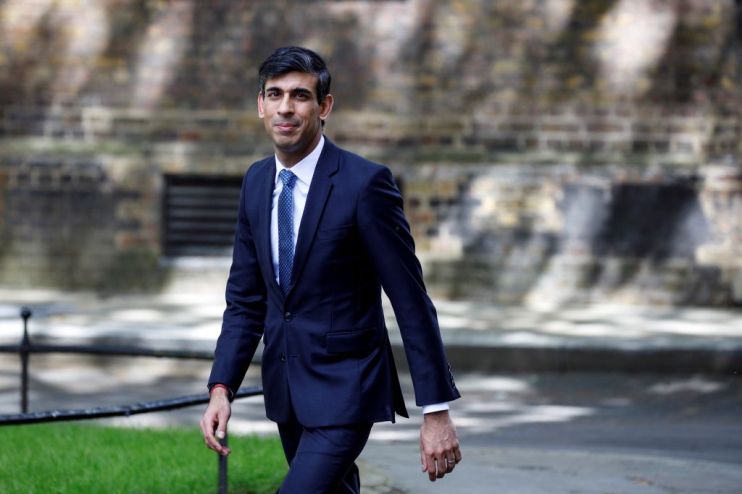Sunak: Employers to contribute to furlough scheme from August

Chancellor Rishi Sunak this afternoon announced that firms will have to begin contributing towards the government’s furlough scheme from August.
Speaking at today’s coronavirus press conference, Sunak laid out a raft of changes to the Treasury’s job retention programme, the cornerstone of the government’s economic response to the crisis.
In August, firms will only be asked to pay pension and national insurance contributions, and then a “modest” but increasing proportion of worker’s salaries from September onwards.
Sunak stressed that workers will still be paid 80 per cent of their wages for as long as they are on the scheme.
He also announced that self-employed workers would be able to claim a second grant worth up to £6,570.
Sunak said: “We stood behind Britain’s businesses and workers as we came into this crisis and we stand behind them as we come through the other side.
“Now, as we begin to re-open our country and kickstart our economy, these schemes will adjust to ensure those who are able to work can do so, while remaining amongst the most generous in the world”.
Under the new rules, firms will be able to bring back employees part-time from 1 July, and will be responsible for paying them for the hours they work.
The “flexible furlough” is being introduced a month earlier than expected, Sunak said.
In order to do so, firms will no longer be able to place employees on the scheme from 30 June.
Any firm which still wishes to place staff on furlough must do so by 10 June so they fulfil the requisite three week period.
From August, he said the government will continue to pay 80 per cent of worker’s salaries up to £2,500, but employees will have to pay national insurance and pension costs.
A month later, in September, the scheme will be tapered to cover 70 per cent of salaries up to £2,190, with companies asked to pay the remaining 10 per cent to take it up to £2,500.
In October, this will be extended further, with employers expected to pay 20 per cent of wages and the government covering 60 per cent – £1,875 – of the £2,500 package.
Any employees who believe they are not getting their 80 per cent share should contact HMRC’s fraud hotline, he added.
He also confirmed that the scheme would end as previously announced in October.
Around 8.4m workers, or about one in three private sector employees, are currently covered. The cost to the public finances so far is £15bn.
The Institute for Fiscal Studies said the total cost of the two schemes could now surpass £100bn, but Sunak said it was hard to be sure due to the nature of the flexible furlough scheme.
It had been reported that companies would be expected to pay up to 30 per cent of wages.
Business groups: Plan give firms “certainty they need”
The announcement met with enthusiasm from business groups, who said the measures would give companies “the certainty they need to plan for the coming months”.
Mike Cherry, chairman of the Federation of Small Businesses, said: “The Chancellor has today given thousands of small business owners the certainty they need to plan for the coming months.
“We’ve always said that extending the JRS and making it more flexible would be key to getting the economy back on its feet”.
Edwin Morgan of the Institute of Directors said that he was “delighted the Treasury has taken on board our members’ calls to bring in part-time furloughing as soon as possible, and to reduce the minimum furlough period”.
Adam Marshall, director general of the British Chambers of Commerce, said Sunak had “listened to firms and struck a careful balance” which would enable them to bring employees back to work.
“The gradual reduction in furlough contributions from the Treasury will give businesses additional time to rebuild their income streams and cash flows, and the decision to give businesses maximum flexibility to bring people back part-time will be appreciated”, he added.
Marshall also hailed the extension of the self-employment support scheme, which has already received 2.3m claims worth £6.8bn.
He said: “The extension of support for the self-employed will come as welcome relief for those who have seen their livelihoods impacted by the virus.
“It is right that this group continues to receive similar levels of support to those on PAYE.”